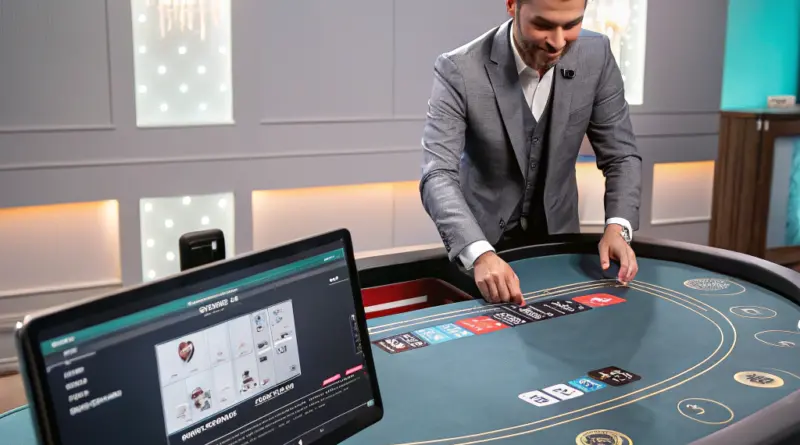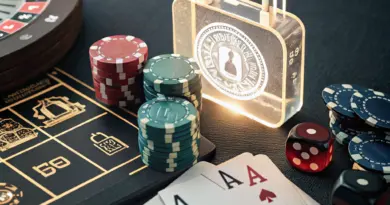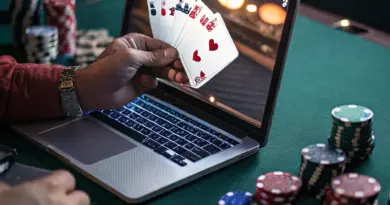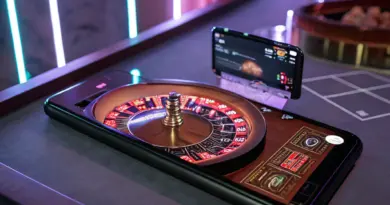Understanding Odds: Mathematics of Popular Casino Games
The flashing lights, the ringing bells, and the palpable tension in the air—casinos are designed to excite and entertain. But beneath the sensory spectacle lies a mathematical foundation that governs every game on the floor. Understanding the odds is not just about knowing your chances of winning; it’s about appreciating the elegant mathematics that ensures casinos remain profitable while still giving players opportunities to win.
Let’s dive into the fascinating world of casino mathematics, where probability theory meets real-world gaming.
The House Edge: Casino’s Mathematical Advantage
Before exploring individual games, it’s essential to understand the concept of the house edge—the mathematical advantage that ensures casinos remain profitable over time.
What Is the House Edge?
The house edge is the percentage of each bet that the casino expects to keep over the long run. For example, a game with a 5% house edge means that, on average, players will lose $5 for every $100 wagered. This doesn’t mean you’ll lose exactly 5% each time you play—short-term results can vary widely—but over thousands of plays, the mathematics becomes remarkably predictable.
How Casinos Balance Profit and Player Experience
Casinos carefully calibrate their games to balance two competing objectives:
1. Ensuring consistent profitability
2. Providing players with enough wins to keep them engaged
This delicate balance is achieved through precise mathematical calculations that determine payout ratios, game rules, and betting structures.
“Casino games are designed with a precision that would impress any mathematician. They create an illusion of fairness while subtly tilting the odds in the house’s favor.” – Edward Thorp, mathematician and authorJose of “Beat the Dealer”
Probability Basics for Casino Games
Understanding Probability Expressions
Probability in casino games is typically expressed in three ways:
– Fractions: Such as 1/38 (chance of hitting a specific number in American roulette)
– Decimals: For example, 0.026 (the same probability expressed as a decimal)
– Percentages: In this case, 2.6% chance
Independent vs. Dependent Events
In casino games, we encounter two types of probability events:
– Independent events: The outcome of one event doesn’t affect future events (like roulette spins)
– Dependent events: Previous outcomes affect future probabilities (like card games after cards have been dealt)
Roulette: The Wheel of Probability
American vs. European Roulette Odds
Roulette offers a perfect illustration of how small rule changes significantly impact odds.
European Roulette:
– Single zero wheel (37 pockets)
– House edge: 2.7%
American Roulette:
– Double zero wheel (38 pockets)
– House edge: 5.26%
This seemingly minor addition of an extra zero pocket nearly doubles the house edge!
Probability of Common Roulette Bets
| Bet Type | European Roulette Odds | American Roulette Odds | European Payout | House Edge (European) |
|---|---|---|---|---|
| Single Number | 1 in 37 (2.7%) | 1 in 38 (2.63%) | 35:1 | 2.7% |
| Red/Black | 18 in 37 (48.65%) | 18 in 38 (47.37%) | 1:1 | 2.7% |
| Odd/Even | 18 in 37 (48.65%) | 18 in 38 (47.37%) | 1:1 | 2.7% |
| Dozen | 12 in 37 (32.43%) | 12 in 38 (31.58%) | 2:1 | 2.7% |
| Column | 12 in 37 (32.43%) | 12 in 38 (31.58%) | 2:1 | 2.7% |
The Gambler’s Fallacy
Many roulette players fall victim to the “Gambler’s Fallacy”—the mistaken belief that if a particular outcome hasn’t occurred recently, it’s “due” to happen. For example, if red has appeared 10 times in a row, many players believe black is “due.” In reality, each spin is an independent event with the same probability regardless of history.
Blackjack: Where Skill Meets Probability
Basic Probability and House Edge
Blackjack stands apart from many casino games because player decisions significantly impact the house edge.
– With perfect basic strategy: House edge as low as 0.5%
– With poor strategy: House edge can exceed 2-3%
Card Counting and Conditional Probability
Blackjack introduces the concept of conditional probability—as cards are dealt, the composition of the remaining deck changes, altering the probabilities of future outcomes.
Card counting exploits this by:
1. Tracking the ratio of high cards (10s, face cards, aces) to low cards
2. Increasing bets when the deck is rich in high cards (favorable to the player)
3. Decreasing bets when the deck contains mostly low cards (favorable to the dealer)
Impact of Rule Variations
Blackjack house edge is affected by numerous rule variations:
– Number of decks used (fewer decks reduce house edge)
– Dealer standing or hitting on soft 17
– Ability to double after splitting
– Surrender options
Craps: Complex Bets, Simple Math
The Pass Line and Come Bets
Craps may seem intimidating with its complex betting layout, but its core bets are mathematically straightforward:
– Pass Line bet house edge: 1.41%
– Come bet house edge: 1.41%
These are among the best bets in the casino, offering nearly 50/50 odds.
The Odds Bet: The Casino’s Zero-Edge Concession
The “odds bet” in craps is unique in the casino world:
– It has zero house edge (true odds)
– Can only be placed after making a Pass or Come bet
– Maximum allowed odds bet varies by casino
Proposition Bets: The Mathematical Trap
While the main bets in craps offer excellent odds, proposition bets in the center of the table carry much higher house edges:
– Any 7: 16.67% house edge
– Hard 4 or Hard 10: 11.11% house edge
– Hardway bets: 9.09% to 11.11% house edge
Slot Machines: Engineered Randomness
Random Number Generators
Modern slot machines use Random Number Generators (RNGs) that:
– Generate thousands of random numbers per second
– Determine reel positions when the spin button is pressed
– Ensure completely random outcomes independent of previous spins
Return to Player (RTP) Percentages
Slot machines are programmed with specific Return to Player percentages:
– Typical RTP range: 85% to 98%
– House edge = 100% – RTP
– Higher denomination machines generally offer better RTPs
The Mathematics of Jackpots
Progressive jackpots use fascinating mathematics:
– A small percentage of each bet contributes to the jackpot
– The jackpot’s expected value increases as the jackpot grows
– At certain points, the mathematical expected value can theoretically favor the player (though the variance remains enormous)
Poker: Probability, Psychology, and Skill
Calculating Hand Probabilities
Poker combines complex probability calculations:
– Probability of specific starting hands
– Odds of improving your hand with community cards
– Pot odds (the ratio of the current pot size to the cost of a contemplated call)
Expected Value in Poker Decisions
Skilled poker players make decisions based on Expected Value (EV):
EV = (Probability of winning × Amount won) – (Probability of losing × Amount lost)
A positive EV indicates a profitable decision in the long run, even if it sometimes results in losses.
The Mathematics of Bluffing
Game theory provides mathematical foundations for optimal bluffing frequencies:
– Too frequent bluffing: Opponents will call more often
– Too infrequent bluffing: Opponents will fold when you have strong hands
– Optimal bluffing creates mathematical indifference in opponents
Baccarat: Simplicity and Low House Edge
Player vs. Banker Bet Probabilities
Baccarat offers some of the lowest house edges in the casino:
– Banker bet: 1.06% house edge
– Player bet: 1.24% house edge
– Tie bet: 14.36% house edge (avoid this bet!)
The Mathematics Behind the 5% Commission
The banker bet wins slightly more often than it loses, which is why casinos charge a 5% commission on winning banker bets to maintain their edge.
Putting It All Together: Strategic Casino Play
Comparing House Edges Across Games
| Game | Bet Type | House Edge |
|---|---|---|
| Blackjack | Basic Strategy | 0.5% |
| Craps | Pass Line with Odds | 0.8% (with 3-4-5X odds) |
| Baccarat | Banker | 1.06% |
| Roulette (European) | Any bet | 2.7% |
| Roulette (American) | Any bet | 5.26% |
| Slot Machines | Varies | 2-15% |
| Keno | Typical | 25-30% |
Variance and Bankroll Management
Understanding mathematics helps with proper bankroll management:
– Games with lower house edges generally have lower variance
– Higher variance games require larger bankrolls relative to bet size
– Proper bankroll management can extend playing time and enjoyment
The Law of Large Numbers
Casino mathematics relies on the Law of Large Numbers:
– Short-term results can vary wildly from expected values
– As the number of trials increases, results converge toward mathematical expectation
– Casinos rely on volume to ensure their mathematical edge manifests
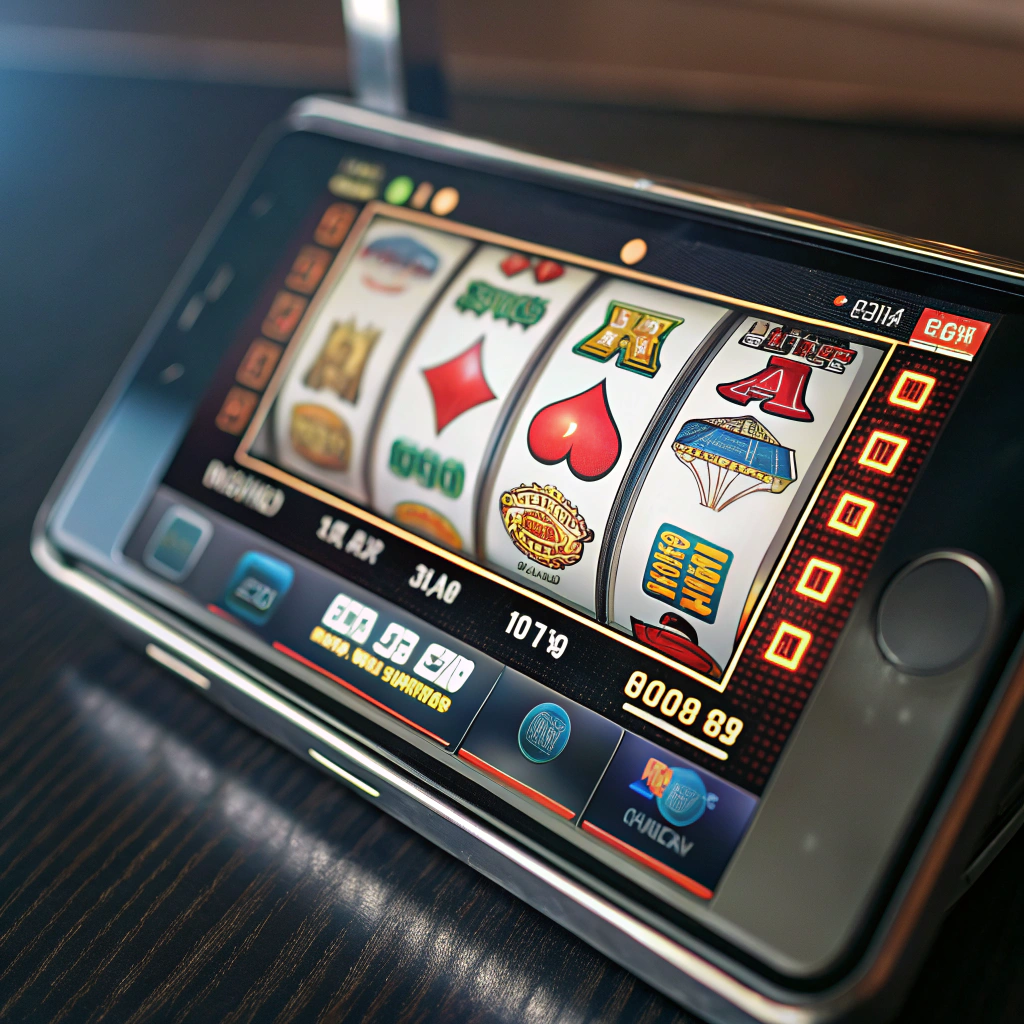
Conclusion: Knowledge as Power
Understanding the mathematics behind casino games doesn’t guarantee winning, but it empowers players to make informed decisions. By choosing games with favorable odds, employing optimal strategies, and managing bankrolls intelligently, players can maximize enjoyment while minimizing losses.
The next time you step onto a casino floor, take a moment to appreciate the mathematical precision behind the excitement. The house may always have an edge, but knowledge of probability can help you navigate the odds more effectively and enjoy the mathematical dance that is casino gaming.
Remember, the true value of understanding casino mathematics isn’t just about trying to win—it’s about appreciating the elegant probability theories that have shaped these games over centuries of play.
